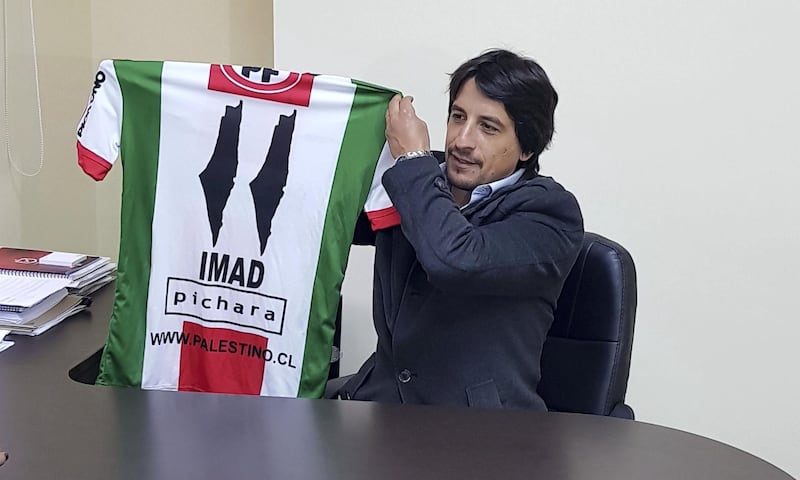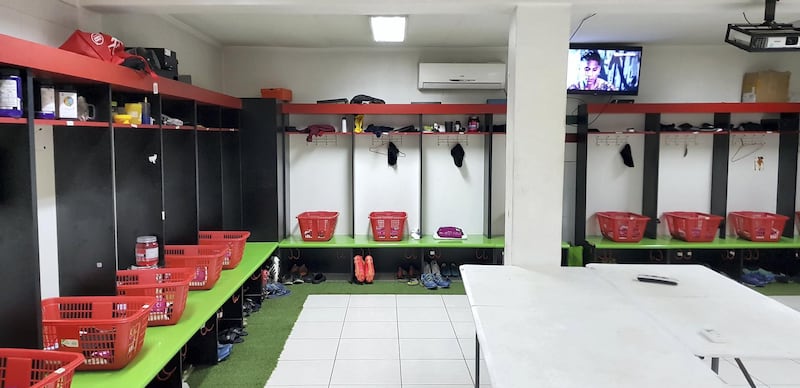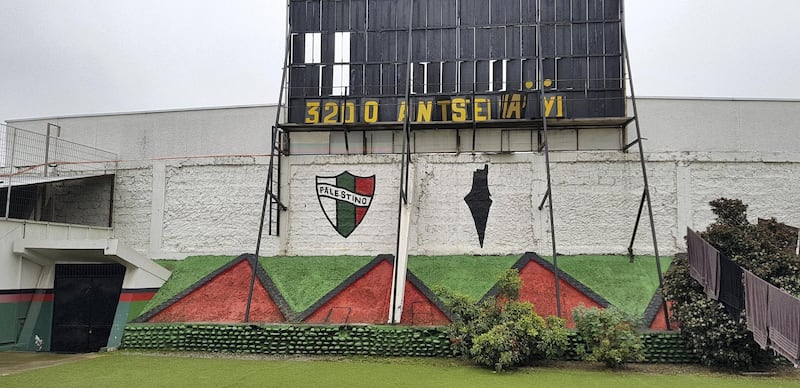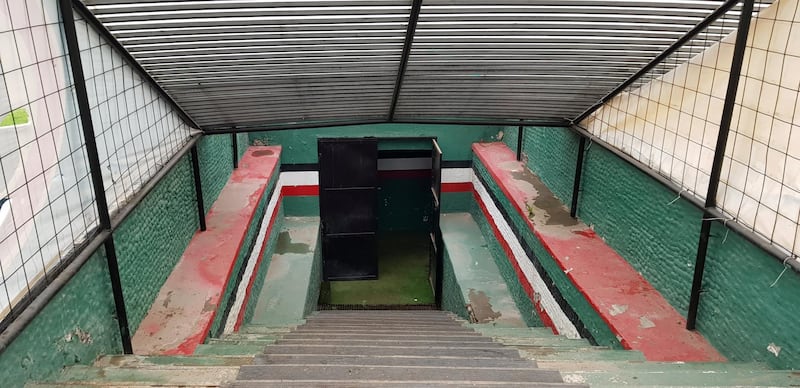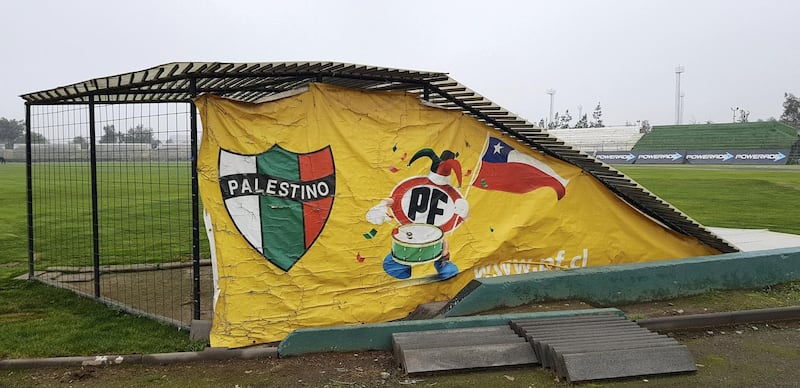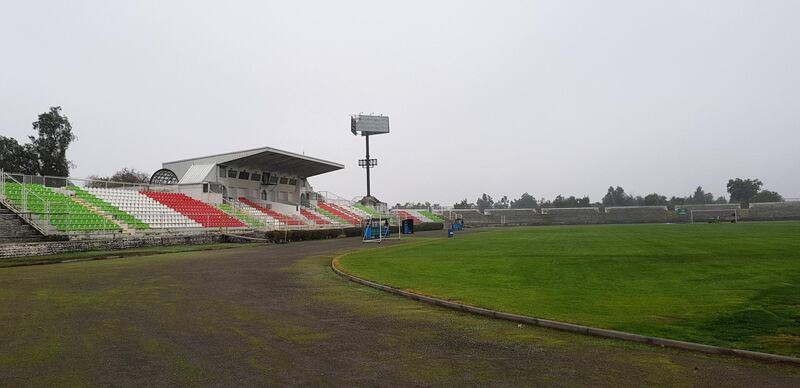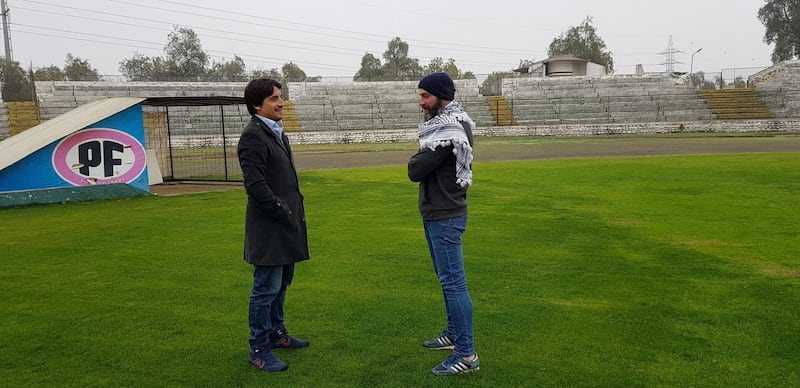From his office above La Cisterna stadium in Santiago, Chile, Roberto Kettlun insists that Deportivo Palestino is a sports club, not a political institution.
But his surroundings betray him. The white walls are bare but for two wooden plaques engraved with the map and flag of Palestine – accolades from a sports club in a village outside Ramallah.
A glance outside his window overlooking the pitch reveals the stands, painted in the colours of the Palestinian flag. Thick fog hangs over the pitch, which was overrun with players training a few hours earlier. It is cold outside – the type of weather that gets into your bones. "Our mission is to do sports," he says, before conceding: "But we represent a flag, we represent our blood, our culture."
Kettlun, 37, is the sports manager of Deportivo Palestino, a Chilean football club known the world over for being the only team outside Palestine to bear the contested country’s name.
The club was founded on August 20, 1920, by Palestinian immigrants as a means of unifying people and integrating themselves into the Chilean culture. What began as a family institution has grown into a full-blown business with sponsorships and participation in global events. They play their domestic football in Chile's top flight, the Primera Division.
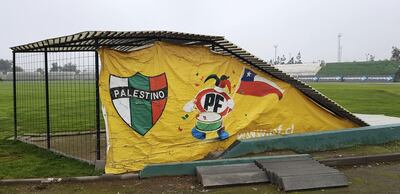
“Every field that we go to and raise up our flag, people will join us because it’s a fair cause that is not just for Palestinians, but also for humanity,” he says.
Kettlun has managed the club for four years, but his connection to it runs deep. The Christian from Beit Jala, a village on the northern outskirts of Bethlehem, 13,200 kilometres from Santiago, played midfield for Palestino for three years. His great-grandfather made the arduous journey to Chile in the early 20th century, following in the footsteps of many other Christian Palestinians who fled Ottoman persecution. Kettlun flits seamlessly from heavily accented English to Arabic.
Palestino may not be a political institution, but to play under the Palestinian flag has become inherently political. The club constantly dances dabke over the line between activism and sport.
In 2014, the club attracted worldwide media attention after it replaced the 1's on the back of their team's football shirts. Kettlun knows what they did broke the rules, but he doesn't regret it. "We are proud of what we did because it shows that we are committed to our cause."
The shirts are still sold on their website.
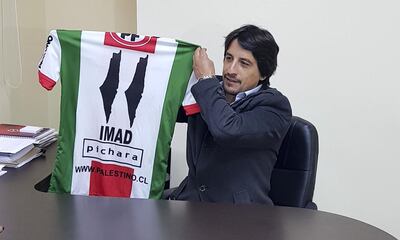
It was also not the first time Kettlun found himself in hot water for making a stand. Born in Chile and raised playing football, his love for sport and country aligned when he was offered the opportunity to play for Hilal Al Quds in Ramallah – which he affectionately calls Ramallorc (a combination of Ramallah and Mallorca) to reflect the fun he had there – and to join the Palestinian national team.
“My father told me: ‘You are the only one who has the chance to return to home.’ So I said: ‘Yallah, let’s do it, why not?’”
As with most things in a country under occupation, the move did not go as expected. As soon as he arrived, the second intifada broke out. He and his teammates were forced to train and play in exile in Kuwait and Jordan. They returned to find their facilities in a shambolic state.
After a year of tolerating sub-par facilities, Kettlun approached Jibril Rajoub, president of the Palestinian Football Association, with his plans to rebuild. Together, they worked on bringing in physiotherapists and orthopaedic doctors. Previously, any Palestinian player who got injured had to go either to Jordan or, for those with Israeli passports, to Israel for treatment.
Players who could not afford to go to Jordan or were denied entry to Israel were forced to wait until they recovered naturally. The team brought in doctors from Chile and began compiling a file of grievances against Israel for impeding their development as a football team.
“Fifa would send us materials or professors to instruct our coaches in Palestine and Israel would stop them at the border and send them away. It was very difficult to develop football under the occupation.”
The case culminated in a journey to Switzerland in 2015 for the Fifa Congress, where a Chilean lawyer represented their claim. "We got all these facts, we filed everything and we said: 'Look, we have a third party who is interfering with our development.' Fifa interfered and created a committee, and Israel was threatened that if they didn't change a couple of things they would be suspended or kicked out of Uefa."
The complaint would inevitably come back to hurt Kettlun – once he retired from football, Israeli officials came knocking on his door.
“Once I stopped playing football, they knew everything, of course. They told me: ‘We know who you are, we know what you did and you are not playing any more. Bye bye.’”
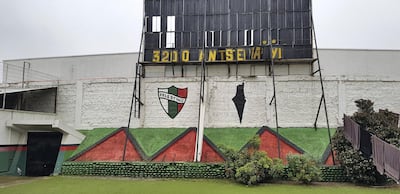
Kettlun did not have a valid visa to remain in Palestine, and he and his family were given 10 days to withdraw their children from school, pack up their home and leave.
Today, Kettlun is eager to return, but in the meantime, he hopes to bring a piece of his homeland to Chile.
Deportivo Palestino has launched a campaign that aims to turf their pitch using soil gathered from the various regions of Palestine.
"Our field is our land" will also serve as a source of revenue for the club by introducing a sponsorship scheme. The greater goal is to rebuild the stadium and have the infrastructure to support a cross-continental training camp for budding footballers in Palestine.
But the road runs both ways for Kettlun, and despite his grand plans for the club, he shares the dream of every Palestinian – to return to their homeland.
When asked if he would, he does not miss a beat: “Of course, ala tool [right away]”.
___________________
Read more:
Banishing negative emotions one step at a time: Syrian refugees learn slacklining in Lebanon
Refugee chefs take over US kitchens to offer a taste of home
Fleeing war, Syrians in Gaza find themselves trapped
___________________
